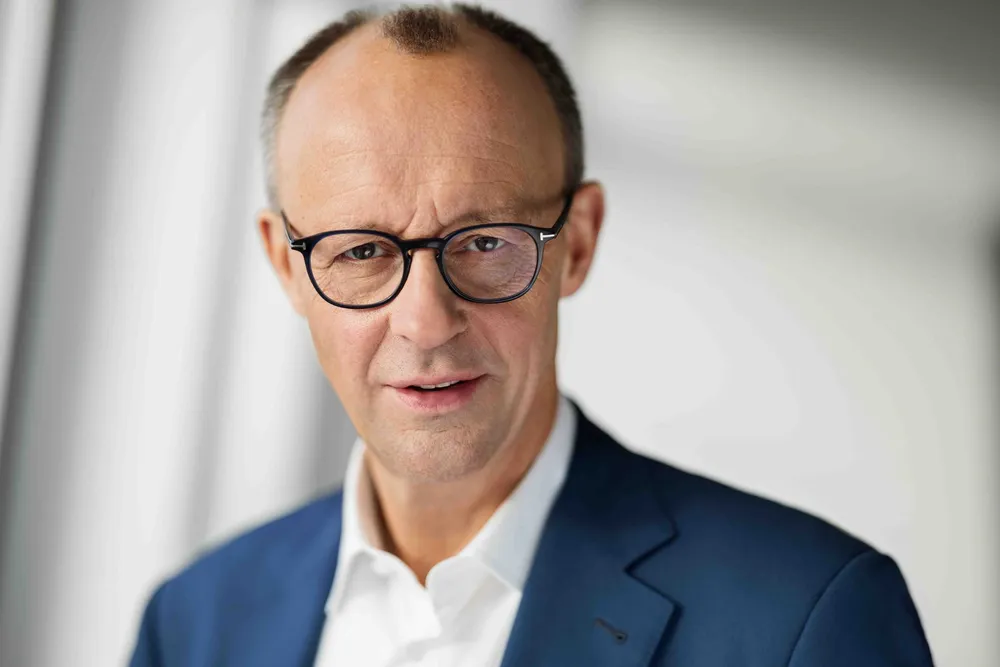'They're necessary': Germany's likely next chancellor changes his tune on wind turbines
Front runner Friedrich Merz rows back from previously strident position on renewable technology after criticism from business leaders

Friedrich Merz, the opposition leader and likely next chancellor of Germany, two weeks ahead of general elections has rowed back from his previously strident criticism of wind turbines following criticism from business groups.
In a televised debate with incumbent Chancellor Olaf Scholz, Merz said that while he certainly doesn’t think that wind turbines are objects of beauty in the countryside in his Sauerland home region and elsewhere, he this time admitted that “they’re necessary”.
In the debate on Sunday, Merz said he was “committed to ensuring that [wind turbines] are built in harmony with the population and that they're accepted by the population”.
But he added wind power will “only be accepted if there aren't wind turbines all around us [at] 360 degrees”.
Merz’s remarks on wind power in November led to criticism by energy and business groups, many of which said proposals by his Christian Democrats (CDU) instead to once again bet on nuclear power were unrealistic given Germany’s need to rapidly provide greater volumes of cheap and clean power.
Scholz in the TV debate stressed that he was “banking on wind power, solar energy and the expansion of our electricity grid”, adding that his government had made progress in all those areas.
“Germany needs more electricity to be economically successful in the future than it does today. We need to get it to 800TWh by 2030, instead of 600 today - a huge increase. And 80% of it has to come from renewable sources, i.e. wind power, solar energy and biomass.”
Merz in the debate also attacked Scholz for dismantling “three functioning nuclear power plants” in the middle of an energy crisis in 2023, while Scholz said the CDU’s hope for Germany to re-enter nuclear power was absurd given the cost of some €40bn ($41.25bn) for a newly built nuclear power station in Europe.
Merz’s CDU and its Bavarian sister party CSU together stand at around 30% in recent opinion polls, while Scholz’s SPD and the Greens each can only expect about half of that – meaning Merz likely will need one of the two to form the next government.
All centrist parties, including the CDU/CSU, have ruled out a coalition with the AfD.
But Merz two weeks ago deliberately relied on votes of the AfD in parliament to pass a motion on immigration, an act that triggered harsh criticism by the SPD and Greens and drove hundreds of thousands to protests on the streets. The move also render make coalition talks much more complicated after the February 23 elections.
(Copyright)